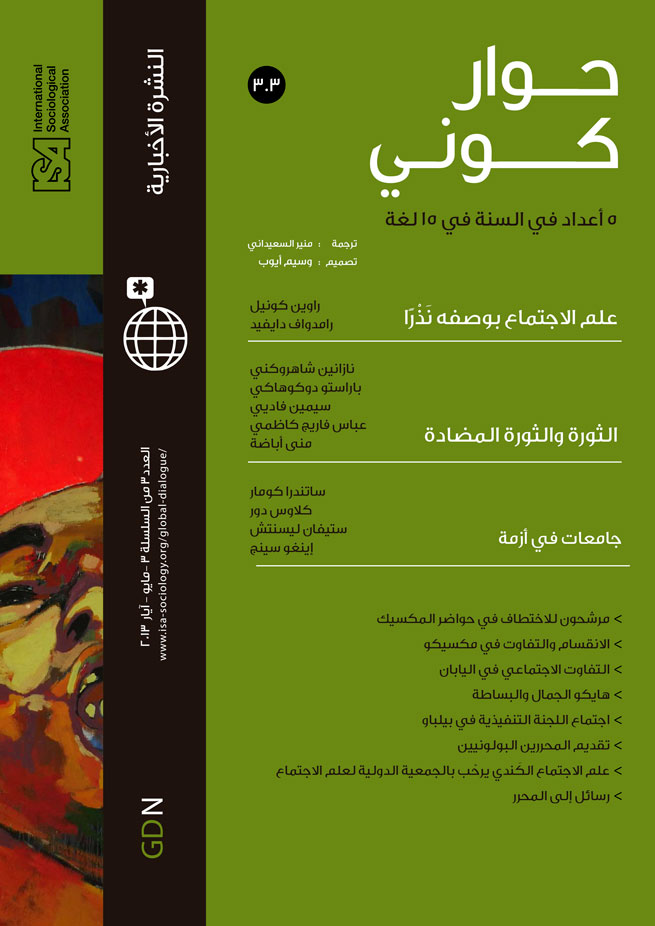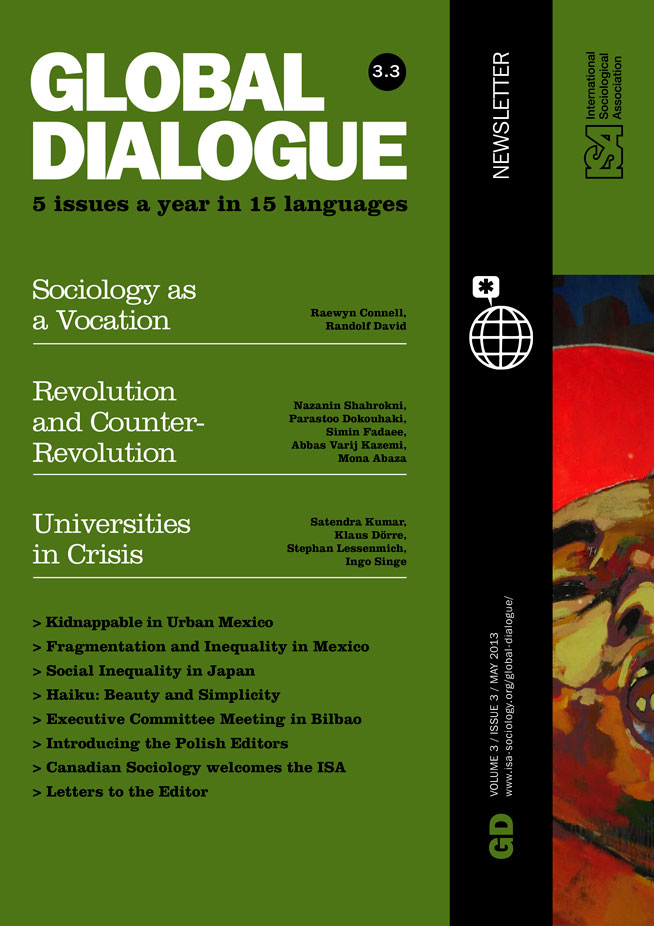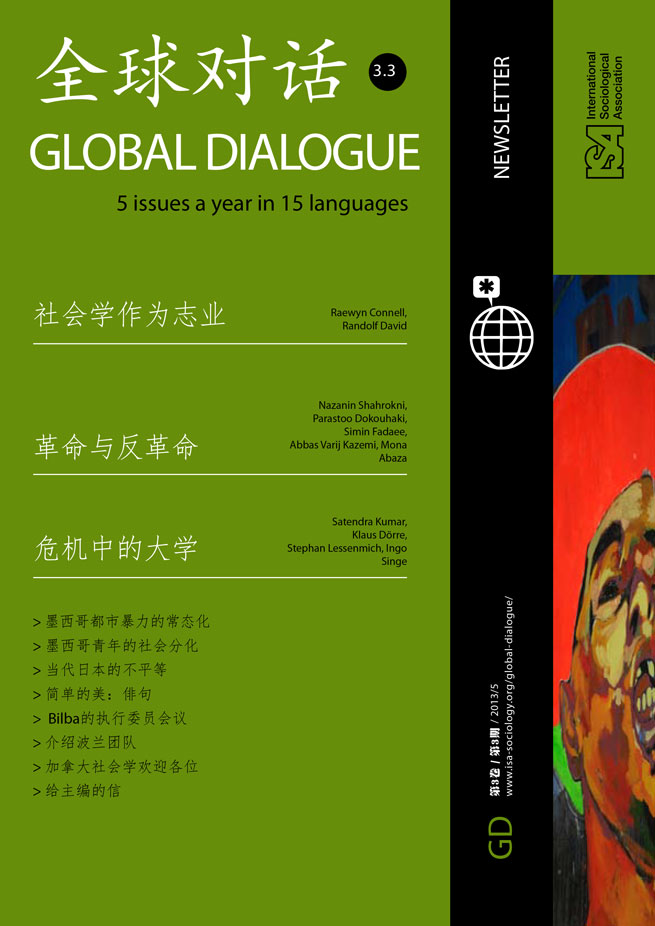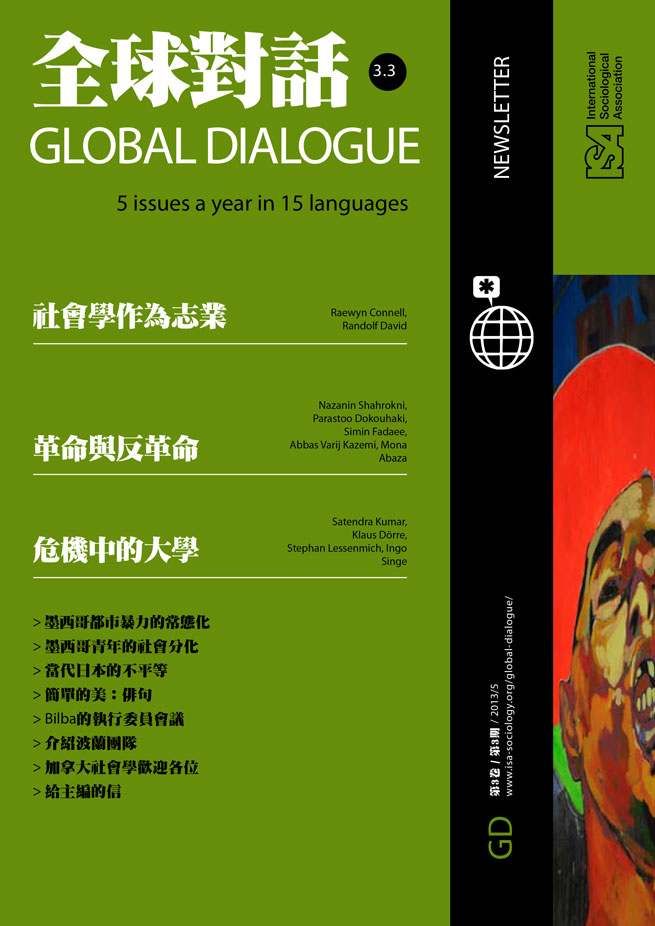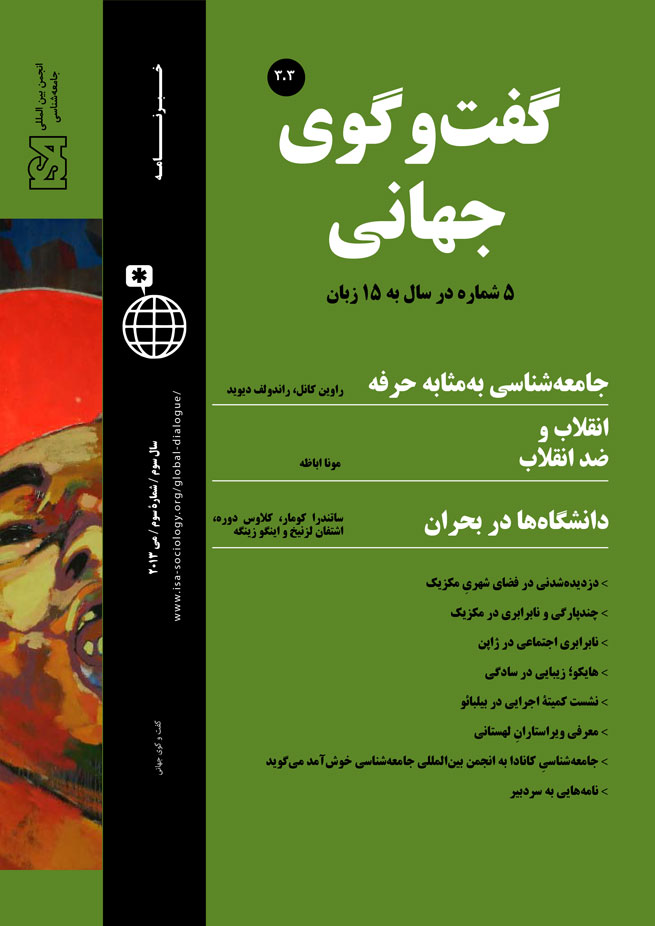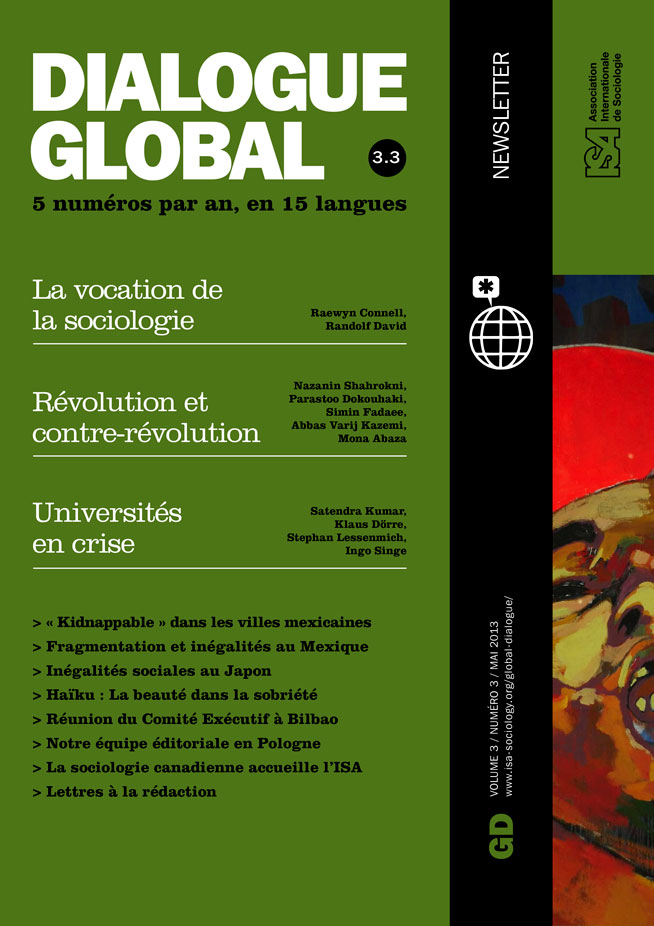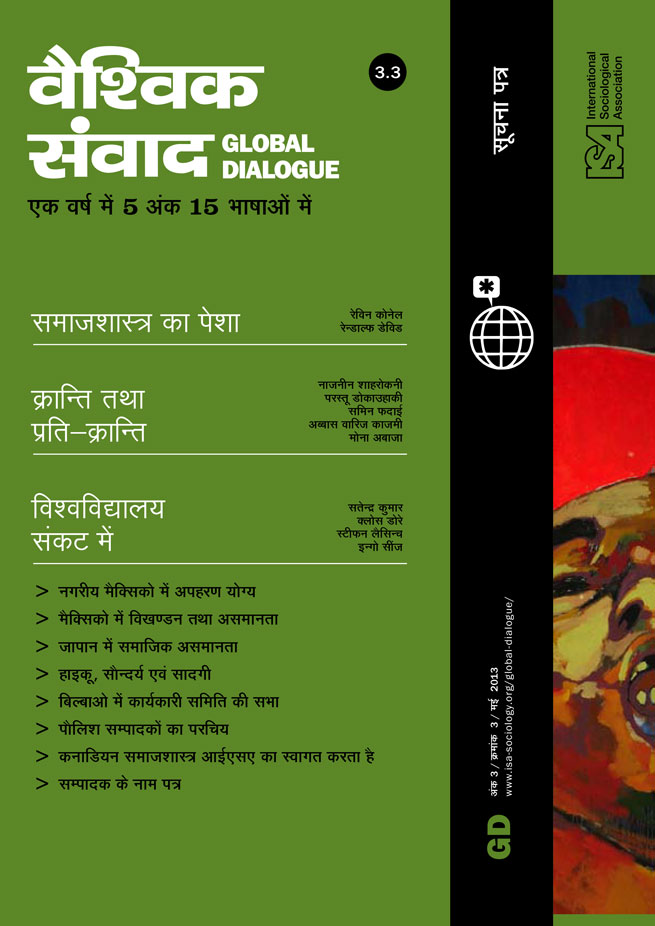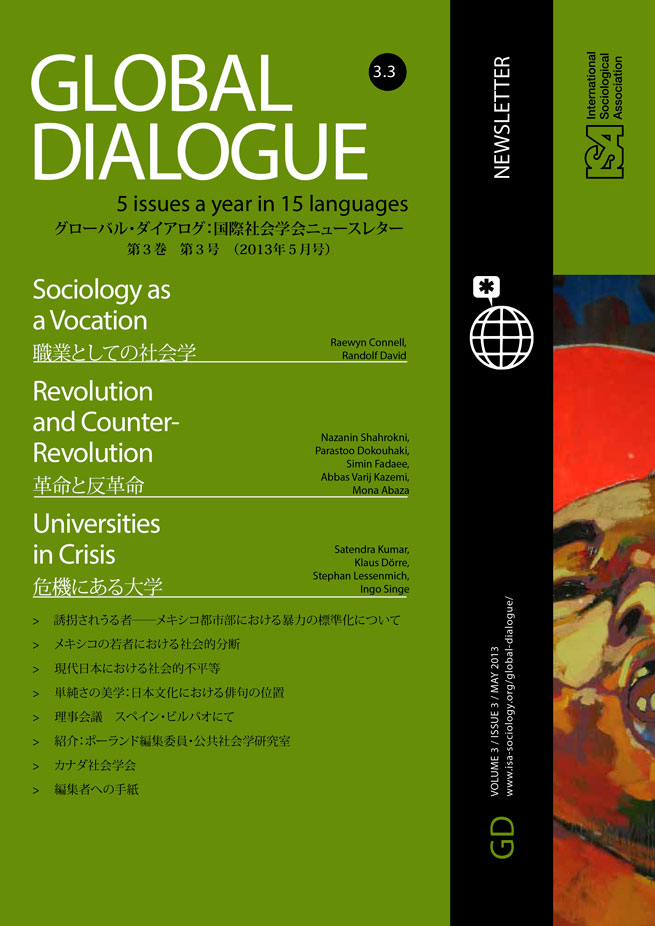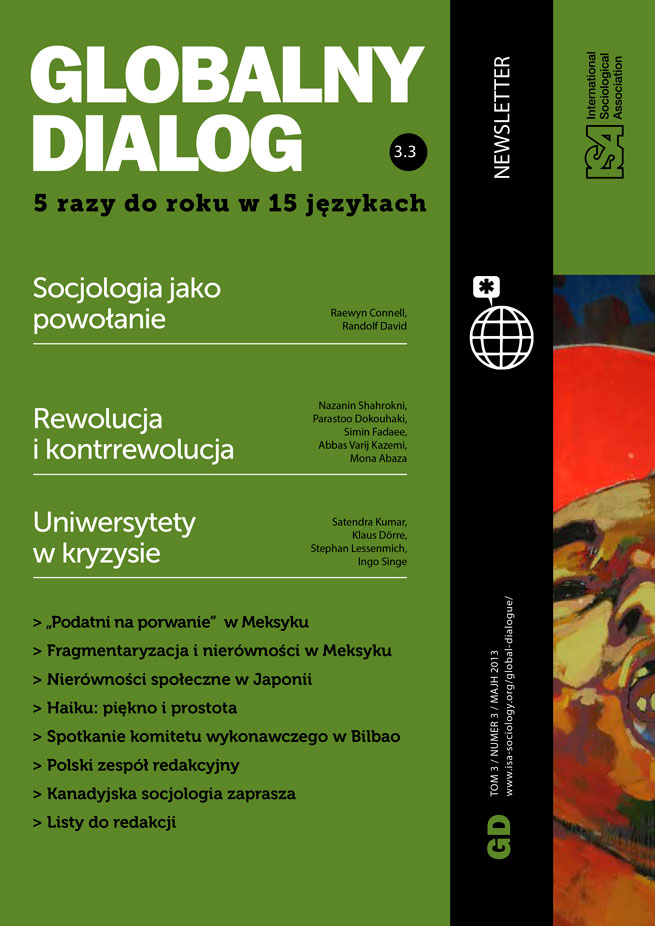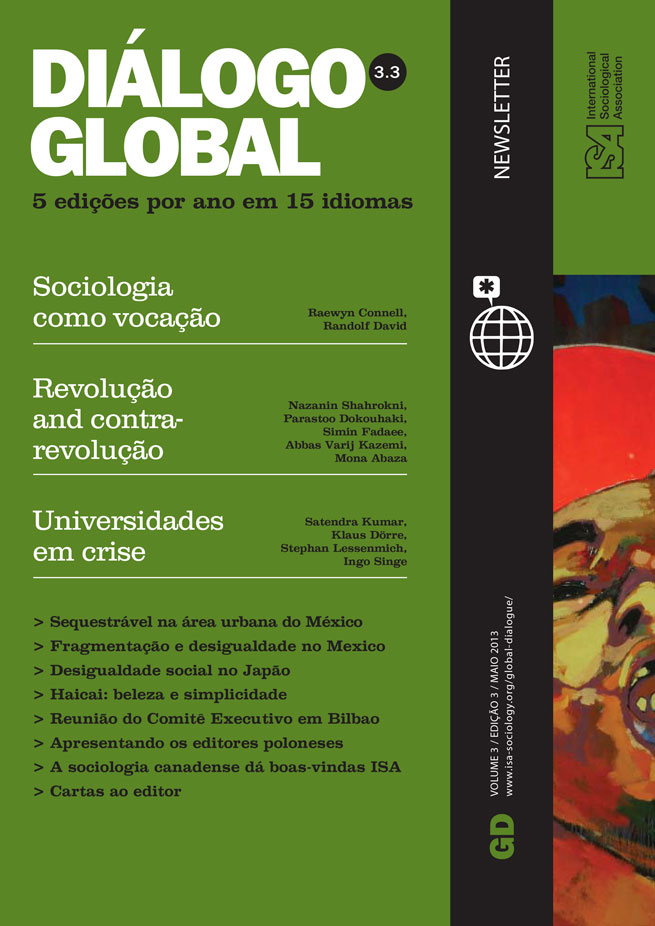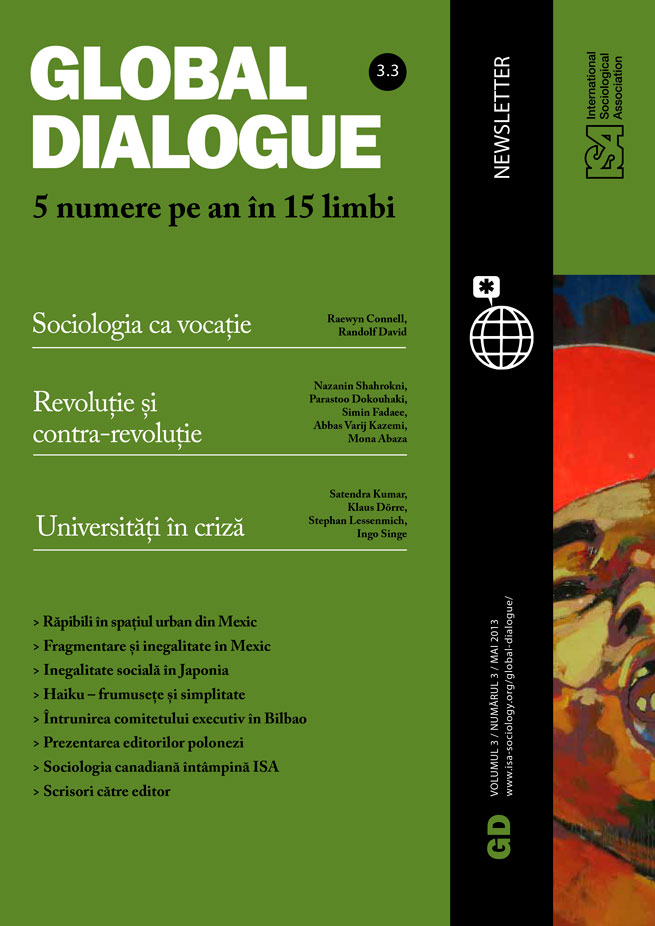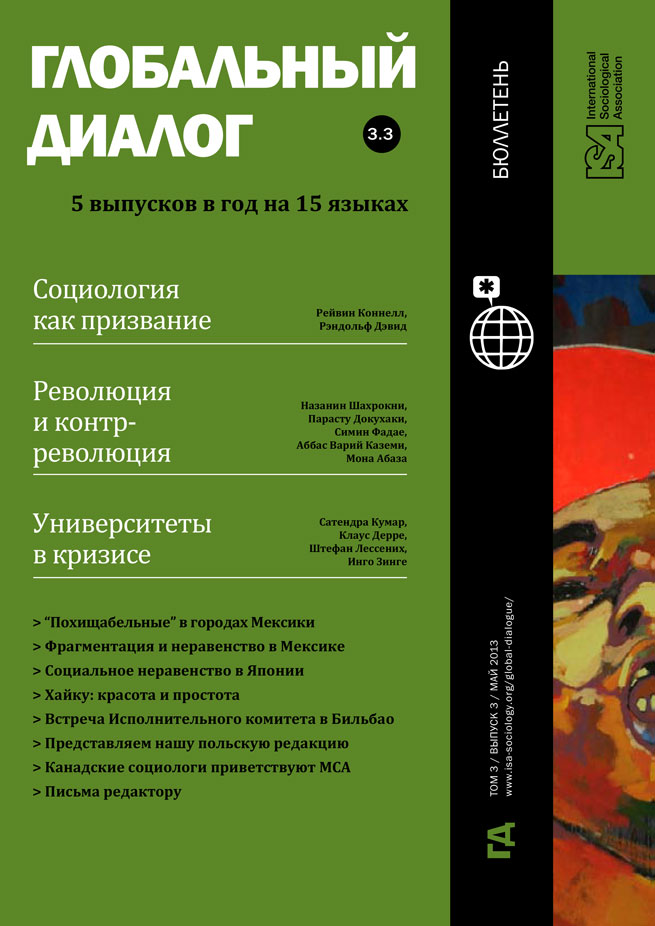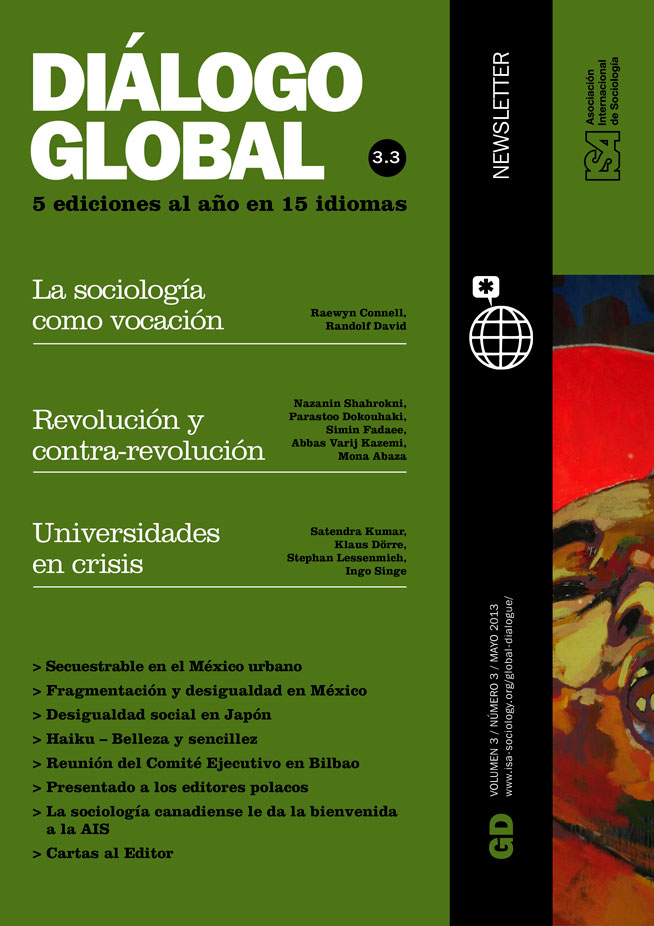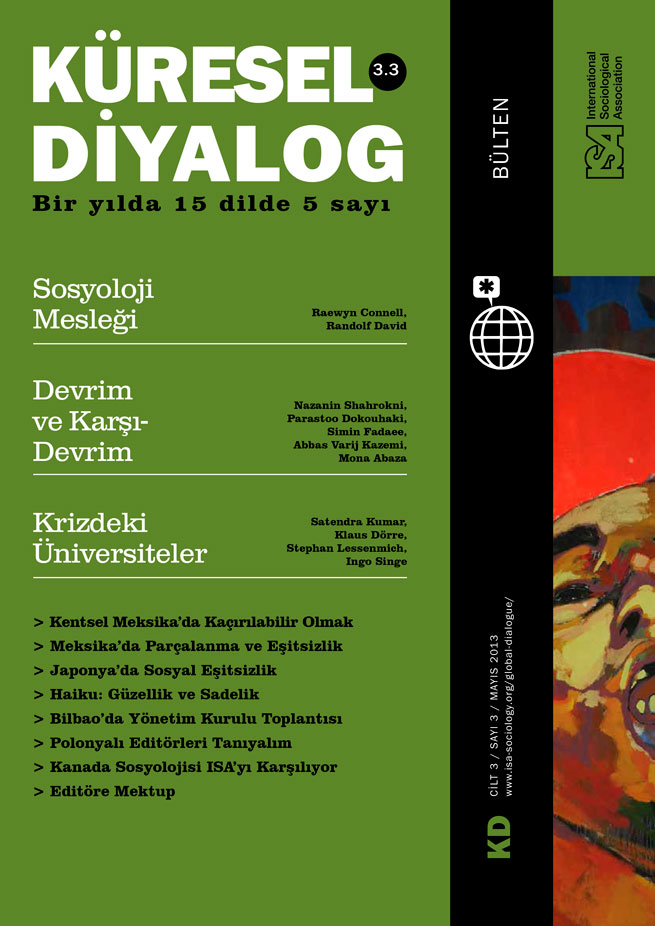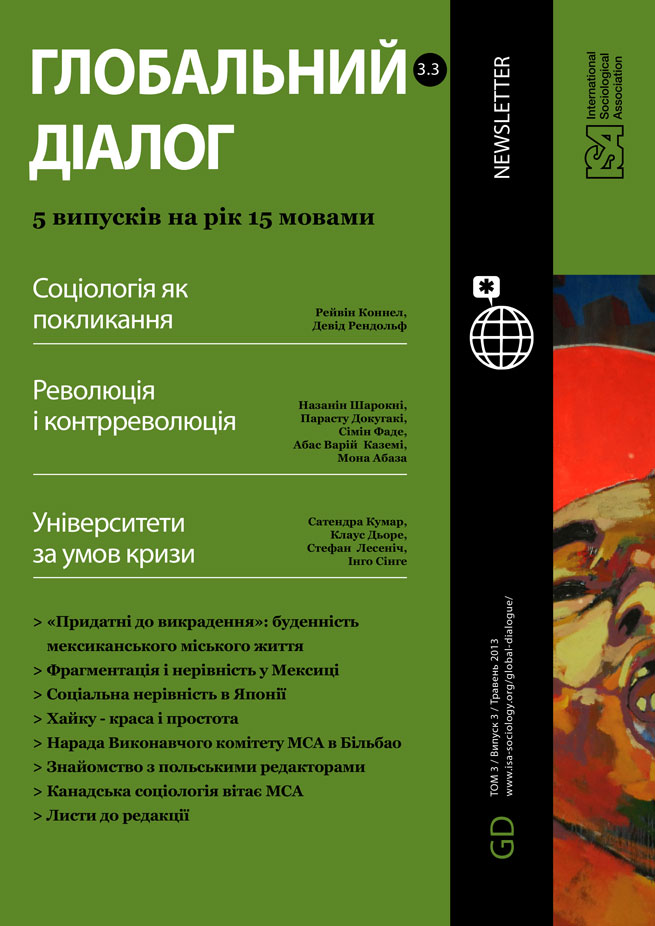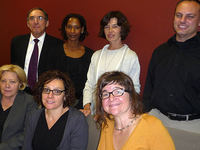Letters to the Editor: Responses to Feras Hammami on Israeli Universities
April 28, 2013
Responses to Feras Hammami on Israeli Universities (Global Dialogue 3.2)
Dear Editor:
It is instructive to contrast the article by Feras Hammami “Political Crisis in Israeli universities,” (GD3.2) with others in the same issue. André Béteille writes that as a sociologist he does not consider it his role to moralize, while Jacklyn Cock writes in a highly political vein which achieves its purpose without glorifying the victim status of those who suffer from the problems she describes and without demonizing those responsible. Not because there are not responsibilities, but because she does not claim to be a lawyer or a judge. The article on Israel, in contrast, puts moralizing and denunciation first, focusing on a number of high-profile and difficult instances, using as evidence only activist sources. The author could have found academic or newspaper sources to bolster his case (this being an academic publication after all). He may also have been caught out by deadlines, because the Israel Higher Education Council decided on February 13th to reverse the decision, which Hammami singles out, to close the Political Science Department at Ben-Gurion University.
The article elevates individual incidents into widespread patterns. There are indeed right-wing groups who denounce professors in Israel for their opinions, and sometimes pressure has been shocking, as in the case of Neve Gordon, but the article ought at least to offer some evidence for the very serious and wide-ranging allegation that “to avoid public vilification, job loss, imprisonment, or even death, staff members delimit the information that might provoke the authorities.” This is hardly a claim to be tossed about carelessly. In any case, Neve Gordon remains a tenured Professor at his university. There was indeed much criticism of the denial of tenure to Ariella Azoulay and the view that it was politically motivated is widely shared. Even so, some evidence should and could have been offered, for it is a serious matter to accuse a university of political bias in appointments.
The article’s call for boycott rides roughshod over the individuality of persons, and seeks to punish people living in a country for the misdeeds of their government. A boycott does, of course make a point. It aims to raise consciousness, and in this case may encourage Israeli academics to reflect on their government’s actions. But that is no justification for a campaign to isolate and vilify a whole population of (supposed) colleagues. Campaigners would do better to focus on areas which might actually hurt governments - and indeed I would not oppose the removal, for example, of Israel’s favored trade relationship with the EU, which is already giving rise to complications about labeling of West Bank products as “Made in Israel.”
The analogy with South Africa is problematic because the universities and the sports associations in that country were themselves practicing discrimination as a policy, which is not the case in Israel. But this boycott is a mean-spirited sort of proposal: it would poison professional and intellectual relationships, and would politicize even further academic collaboration involving Israeli scientists.
David Lehmann, Cambridge University, UK.
Dear Editor:
Feras Hammami’s exploration of the political crisis in Israeli universities brings out how little Israeli academics have felt it necessary to protest their government’s policies. The great majority was silent on the matter of the closure of the Palestinian universities, but when their own academic freedom was threatened there has been a very different response. Crises however often offer opportunities.
One of the powerful propaganda weapons of the Israeli state has been its projection of itself as an island of democracy in an ocean of Arab despotism, another the projection of its universities as a source of liberal criticism. While the wave of media euphoria over a prematurely claimed Arab Spring is spent, the propaganda concerning Israel’s claims to be a democracy and its universities a source of liberal criticism has come into difficulties. A handful of colleagues supported by a tiny number of dissenters but with significant international support has limited - not stopped - victimization. In the case of the proposed closure of an entire department at Ben Gurion University, the role of an international panel has been critical in revealing the modesty of Israel’s commitment to academic freedom. The Council for Higher Education (CHE) having invited an international panel to evaluate all the politics departments in the Israeli university system read the report as recommending closure. Unquestionably the CHE was under pressure from hyper-Zionists in and out of the university who were already gunning for the department as a nest of anti-Zionists with Professor Neve Gordon, a very public supporter of the academic boycott, as their key target.
The CHE succumbed to the pressure, proposing closure in September 2012, but senior academics, not insignificantly from the Weizmann Institute, a power house of Israeli science and technology, immediately saw the harm this would do to the image of Israel’s universities as bastions of academic freedom. Within a week 300 Israeli academics signed a petition criticizing the decision. Internationally, a flurry of individual academics and associations protested. Ben Gurion, the home of the threatened department and also one of Israel’s leading universities, also saw the danger and began legal proceedings against the CHE, arguing that it had a secret and academically irrelevant agenda that breached the legal definition of academic freedom. Worse still for the CHE, the international panel said they had not recommended the closure of the department, questioned the motives behind the move, and pointed out that the CHE had not moved against the University of Bar Ilan though its department had also been criticized.
Mounting pressure on the CHE led it to postpone closure until after the January election. This saw an extreme rightwing government elected but the closure decision was not re-instated. In early February, Haaretz, the most liberal of the Israeli press (2/13/2013) reported that the decision to close had been withdrawn, but that the international panel would continue to monitor the department.
The hope must be that now that Israeli academia has experienced a threat to its own academic freedom – successfully opposed with the help of international support – it will begin to recognize that academic freedom is not divisible but also applies to their Palestinian colleagues who teach and research just a few miles down the road. This is the opportunity.
Hilary Rose, Bradford University, UK.

